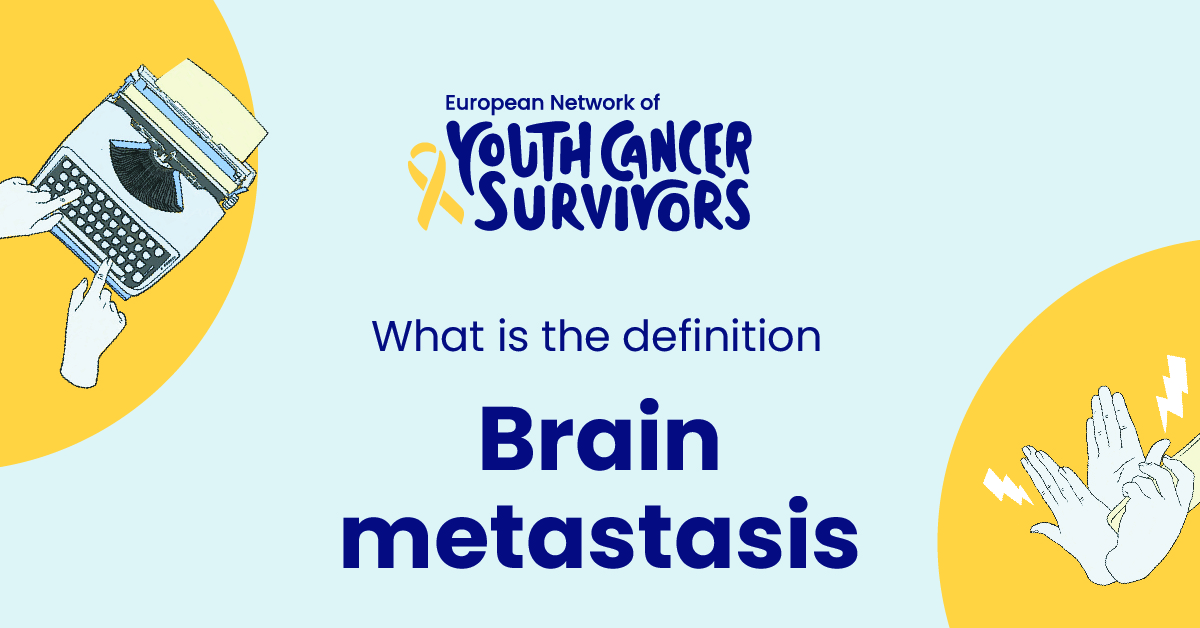
Metastatic tumors are notorious for their ability to spread and infiltrate vital body organs, and the brain is no exception. Brain metastasis refers to the spread of cancerous cells to the brain from another part of the body. It’s a topic worth discussing given the grave prognosis and the complexity involved in its management. It’s vital for us to understand it in depth, comprehend its causes, symptoms, diagnosis methods, and available treatment options.
The Anatomy and Functionality of the Brain
The human brain, the sheriff of our nervous system, is a sophisticated organ with a distinct cellular structure. Divided into two hemispheres, it consists of different regions, each assigned with specific functions ranging from sensory perception to motor control and even cognition. The brain’s main components include the cerebrum, cerebellum, and brainstem.
The brain is the maestro, coordinating inputs and outputs from and to diverse parts of the body. It processes sensory information, dictates motor functions, and controls vital functions like breathing and heartbeat. It’s the powerhouse of thought, memory, emotion, speech, and conscious activity.
Defining Brain Metastasis
Brain metastasis refers to the condition where cancerous cells travel from a primary site of cancer and infiltrate the brain. This intrusion involves the movement of cancer cells through the bloodstream or lymph system.
Different cancer types can cause brain metastases, with lung cancer, breast cancer, melanoma, kidney, and colorectal cancer being the most common culprits. Notably, these metastases can affect any part of the brain. The term brain metastases reveals the stark reality of multiple tumors occurring simultaneously in different parts of the brain.
The Causes and Risk Factors of Brain Metastasis
Primary cancers cause brain metastasis. Cancers naturally harbor the potential to metastasize; this ability is highest in malignant or more aggressive forms. Cancer cells detach from the primary tumor, invade lymph nodes or enter the bloodstream, and spread to the brain.
While not everyone with cancer will experience brain metastases, certain elements heighten the risk. These risk factors encompass age, specific types of primary tumors, stage and grade of the primary cancer, and absence or presence of other metastases.
Brain metastasis does not occur in isolation; it’s intimately related to cancer. The more aggressive the cancer, the higher the risk of developing metastases, including brain ones.
Symptoms and Signs of Brain Metastasis
Brain metastasis symptoms often depend on the size and location of the tumor. Common signs include headaches, seizures, nausea or vomiting, memory loss, and changes in personality or behavior. Also, a person may experience difficulty with movement or coordination, such as stumbling or feeling weak on one side of the body.
The brain region affected by the tumor dictates the type of symptoms. For instance, a tumor in the frontal lobe might cause personality changes, while one in the temporal lobe could lead to language and speech difficulties. Progression of the symptoms could lead to complications such as hydrocephalus (a buildup of fluid in the brain).
Diagnosing Brain Metastasis
Doctors employ several tests, like physical exams, CT scans, MRI, PET scans, and, occasionally, a biopsy to diagnose brain metastasis.
Early diagnosis of brain metastasis improves the prognosis and allows more effective treatment. It may help control the spread, alleviate symptoms, and enhance the quality of life.
Treatment Options for Brain Metastasis
Treatment options for brain metastasis include chemotherapy, radiation therapy, surgery, targeted therapies, and immunotherapy. The choice depends on several factors such as patient’s overall health, type, location and size of the metastasis, and the primary cancer’s type and control.
Besides, palliative care forms a critical part of management, focusing on symptom relief, preventing complications, and enhancing comfort and quality of life. It may involve medications, physical therapy, familial support, and other approaches.
Get to know us better
If you are reading this, you are in the right place – we do not care who you are and what you do, press the button and follow discussions live

Preview of Current Research and Developments
Today’s brain metastasis research is bent on improving diagnosis methods and optimizing the therapeutic measures. Some promising research fronts include the application of artificial intelligence in diagnostic imaging, development of more potent chemotherapeutic drugs, and better genetically targeted therapies.
Interestingly, these advancements are already having notable impacts. Healthcare providers are better suited at detecting and managing brain metastasis, ultimately enhancing the patient’s life expectancy and quality.
Living With Brain Metastasis
Living with brain metastasis can be challenging, necessitating strong support from healthcare providers, family, and friends. Various resources, including therapists and support groups, can provide help and guidance. Patients can learn effective coping strategies like maintaining regular daily activities, managing stress, staying active, and keeping a balanced diet.
Conclusion
In conclusion, brain metastasis is a complex condition linking to cancer’s malignancy. It is crucial for everyone, whether in the healthcare arena or beyond, to understand its dynamics, symptoms, diagnoses, and treatment options. Conversely, both in scientific research and among patients, hope prevails as we continue to make significant strides in understanding and managing brain metastasis.
FAQ for Understanding Brain Metastasis
- What exactly is Brain metastasis?
Brain metastasis refers to cancer that has spread to the brain from a primary location elsewhere in the body.
- Who is at risk of developing Brain metastasis?
People with specific types of primary cancers like lung, breast, melanoma, kidney, and colorectal cancers are at an elevated risk of developing brain metastasis, especially if they are advanced stages.
- Can Brain metastasis be prevented?
As brain metastasis is usually a progression of an existing cancer, the best prevention methods involve early detection and effective treatment of the primary cancer.
- What are the signs I need to look out for Brain Metastasis?
Signs to watch out for include headaches, seizures, nausea or vomiting, memory loss, personality or behavior changes, and coordination problems.
- What are the potential treatments for Brain metastasis?
Treatment options for brain metastasis include chemotherapy, radiation therapy, surgery, targeted therapies, and at times, immunotherapy. Palliative care is also a crucial part of management.
Understanding Brain Metastasis – Causes, Symptoms, Diagnosis, and Treatment Options
Metastatic tumors are notorious for their ability to spread and infiltrate vital body organs, and the brain is no exception. Brain metastasis refers to the spread of cancerous cells to the brain from another part of the body. It’s a topic worth discussing given the grave prognosis and the complexity involved in its management. It’s vital for us to understand it in depth, comprehend its causes, symptoms, diagnosis methods, and available treatment options.
The Anatomy and Functionality of the Brain
The human brain, the sheriff of our nervous system, is a sophisticated organ with a distinct cellular structure. Divided into two hemispheres, it consists of different regions, each assigned with specific functions ranging from sensory perception to motor control and even cognition. The brain’s main components include the cerebrum, cerebellum, and brainstem.
The brain is the maestro, coordinating inputs and outputs from and to diverse parts of the body. It processes sensory information, dictates motor functions, and controls vital functions like breathing and heartbeat. It’s the powerhouse of thought, memory, emotion, speech, and conscious activity.
Defining Brain Metastasis
Brain metastasis refers to the condition where cancerous cells travel from a primary site of cancer and infiltrate the brain. This intrusion involves the movement of cancer cells through the bloodstream or lymph system.
Different cancer types can cause brain metastases, with lung cancer, breast cancer, melanoma, kidney, and colorectal cancer being the most common culprits. Notably, these metastases can affect any part of the brain. The term brain metastases reveals the stark reality of multiple tumors occurring simultaneously in different parts of the brain.
The Causes and Risk Factors of Brain Metastasis
Primary cancers cause brain metastasis. Cancers naturally harbor the potential to metastasize; this ability is highest in malignant or more aggressive forms. Cancer cells detach from the primary tumor, invade lymph nodes or enter the bloodstream, and spread to the brain.
While not everyone with cancer will experience brain metastases, certain elements heighten the risk. These risk factors encompass age, specific types of primary tumors, stage and grade of the primary cancer, and absence or presence of other metastases.
Brain metastasis does not occur in isolation; it’s intimately related to cancer. The more aggressive the cancer, the higher the risk of developing metastases, including brain ones.
Symptoms and Signs of Brain Metastasis
Brain metastasis symptoms often depend on the size and location of the tumor. Common signs include headaches, seizures, nausea or vomiting, memory loss, and changes in personality or behavior. Also, a person may experience difficulty with movement or coordination, such as stumbling or feeling weak on one side of the body.
The brain region affected by the tumor dictates the type of symptoms. For instance, a tumor in the frontal lobe might cause personality changes, while one in the temporal lobe could lead to language and speech difficulties. Progression of the symptoms could lead to complications such as hydrocephalus (a buildup of fluid in the brain).
Diagnosing Brain Metastasis
Doctors employ several tests, like physical exams, CT scans, MRI, PET scans, and, occasionally, a biopsy to diagnose brain metastasis.
Early diagnosis of brain metastasis improves the prognosis and allows more effective treatment. It may help control the spread, alleviate symptoms, and enhance the quality of life.
Treatment Options for Brain Metastasis
Treatment options for brain metastasis include chemotherapy, radiation therapy, surgery, targeted therapies, and immunotherapy. The choice depends on several factors such as patient’s overall health, type, location and size of the metastasis, and the primary cancer’s type and control.
Besides, palliative care forms a critical part of management, focusing on symptom relief, preventing complications, and enhancing comfort and quality of life. It may involve medications, physical therapy, familial support, and other approaches.
Preview of Current Research and Developments
Today’s brain metastasis research is bent on improving diagnosis methods and optimizing the therapeutic measures. Some promising research fronts include the application of artificial intelligence in diagnostic imaging, development of more potent chemotherapeutic drugs, and better genetically targeted therapies.
Interestingly, these advancements are already having notable impacts. Healthcare providers are better suited at detecting and managing brain metastasis, ultimately enhancing the patient’s life expectancy and quality.
Living With Brain Metastasis
Living with brain metastasis can be challenging, necessitating strong support from healthcare providers, family, and friends. Various resources, including therapists and support groups, can provide help and guidance. Patients can learn effective coping strategies like maintaining regular daily activities, managing stress, staying active, and keeping a balanced diet.
Conclusion
In conclusion, brain metastasis is a complex condition linking to cancer’s malignancy. It is crucial for everyone, whether in the healthcare arena or beyond, to understand its dynamics, symptoms, diagnoses, and treatment options. Conversely, both in scientific research and among patients, hope prevails as we continue to make significant strides in understanding and managing brain metastasis.
FAQ for Understanding Brain Metastasis
1. What exactly is Brain metastasis?
Brain metastasis refers to cancer that has spread to the brain from a primary location elsewhere in the body.
2. Who is at risk of developing Brain metastasis?
People with specific types of primary cancers like lung, breast, melanoma, kidney, and colorectal cancers are at an elevated risk of developing brain metastasis, especially if they are advanced stages.
3. Can Brain metastasis be prevented?
As brain metastasis is usually a progression of an existing cancer, the best prevention methods involve early detection and effective treatment of the primary cancer.
4. What are the signs I need to look out for Brain Metastasis?
Signs to watch out for include headaches, seizures, nausea or vomiting, memory loss, personality or behavior changes, and coordination problems.
5. What are the potential treatments for Brain metastasis?
Treatment options for brain metastasis include chemotherapy, radiation therapy, surgery, targeted therapies, and at times, immunotherapy. Palliative care is also a crucial part of management.

















Comments
Thank you. Comment sent for approval.
Something is wrong, try again later